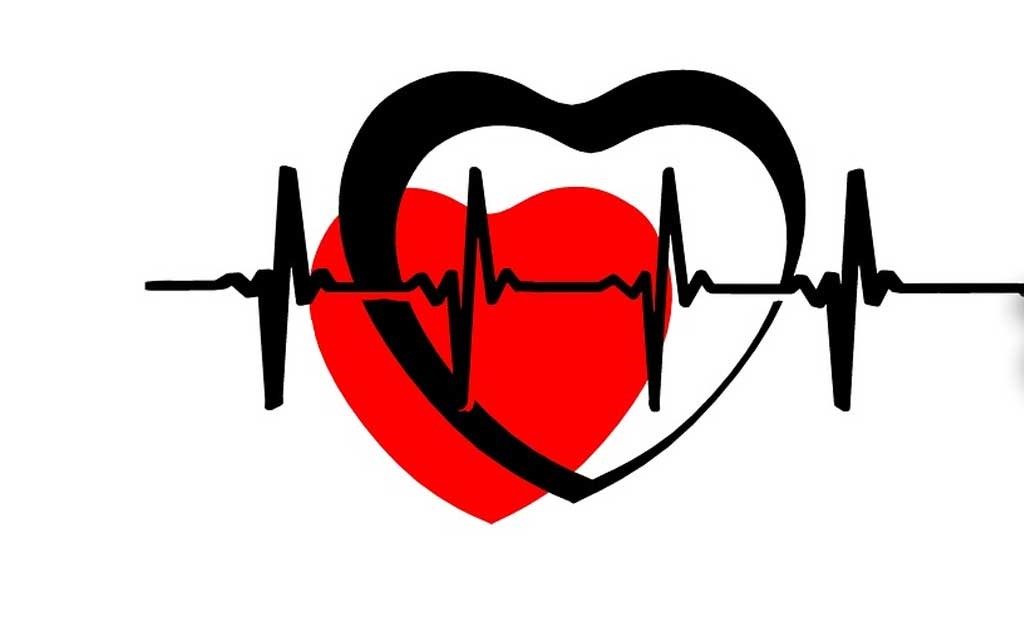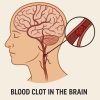Goa is abuzz with excitement as vintage bike and car owners, users, collectors and fans are decking […]

IT’S TIME FOR ACTION, HEART & BRAIN CONNECTION!
MIND & BODY, HEART & SOUL, Sep 28- Oct 04 2024 September 27, 2024It’s World Heart Day on September 29!
On the eve of World Heart Day Goan Observer had this thought-provoking discussion on the subject of prevention of heart disease and its connection with heart diseases. Dr Amit Dias says, “What’s good for the heart is also good for the brain! When you invest in heart health — the outcome is much more than just a healthy heart!” So let’s all get into action and share this lifesaving information…
A Q&A interview with Dr Amit Dias
Goan Observer: Heart disease is a significant global health concern. Could you tell us about the current world burden of heart disease?
Dr Amit Dias: Cardiovascular diseases (CVDs) remain the world’s biggest killer and account for 20.5 million deaths every year. This accounts for around 31% of all global deaths, with heart attacks and strokes being the primary contributors. In low- and middle-income countries like ours, the burden is even more pronounced, with a higher proportion of premature deaths caused by heart disease. The good news is that 80% of all deaths due to cardiovascular disease are preventable. It’s time for action.
Here are some interesting facts about the heart: It beats around 100,000 times per day, pumping about five liters of blood per minute through an intricate network of blood vessels. The circulatory system, which stretches over 60,000 miles in length, allows blood to circulate through the body in less than a minute. Additionally, the heart starts beating just 22 days after conception and keeps working non-stop throughout our lives. Amazing, isn’t it?
Goan Observer: The month of September is also World Alzheimer’s Awareness month – is heart health connected to brain health? Is there any link with Alzheimer’s disease?
Dr Amit Dias: There’s a strong connection between heart and brain health. A healthy heart ensures the brain receives a constant supply of oxygen-rich blood, which is critical for maintaining cognitive function. Risk factors like high blood pressure, diabetes and smoking which are detrimental to heart health, also increase the risk of cognitive decline leading to Alzheimer’s disease. So, the saying “What’s good for the heart is good for the brain” holds true. By protecting the heart, you reduce your chances of developing dementia and Alzheimer’s. We know the theory, it’s time for action. And like charity, prevention starts at home and in our own lives.
Q: Yes, that’s like killing two birds with one stone.
A: Yes, but in this case the stone will not kill two birds but will save them!! In fact, we will save much more than our heart and lungs if we adopt the risk reduction strategies and change our lifestyle.
Q: What is the theme for World Heart Day this year?
A: The theme for World Heart Day this year is “Use heart for action.” It motivates every country to develop or support a national cardiovascular disease action plan. It focuses on making informed choices for heart health, empowering people to take better control over their cardiovascular wellbeing. The idea is to understand the heart’s needs, know the risks and take preventive action. Heart disease is not just coronary heart disease…there could be a range of conditions affecting the functioning of the heart.
Q: Could you elaborate on this? What constitutes heart disease?
A: Heart disease, or cardiovascular disease (CVD), includes a wide range of conditions. These include coronary artery disease, which is the most common form, of heart attack, heart failure, arrhythmias, valvular heart disease, congenital heart defects, rheumatic heart disease, cardiomyopathy, etc. These conditions affect the heart’s ability to function effectively and require timely diagnosis and management.
Q: How can one prevent heart disease?
A: Preventing heart disease involves addressing modifiable risk factors like high blood pressure, high cholesterol, smoking, obesity and physical inactivity. Tobacco cessation is central to heart health. These can be managed through lifestyle changes — such as eating a balanced diet rich in fruits, vegetables, and whole grains, regular exercise and maintaining a healthy weight. Non-modifiable risk factors, like age, family history and genetics, cannot be changed, but knowing your risks and getting regular health check-ups is critical. Managing other conditions like diabetes and hypertension is also essential for heart disease prevention. Here is an easy way to remember this:

USE HEART FOR ACTION
H- Healthy Diet
E- Exercise Regularly
A– Avoid Smoking, Avoid Stress
R- Regular Check-ups
T- Take your symptoms seriously and ACT fast
Q: That’s a great message. Why is tobacco cessation so central to heart health?
A: Tobacco is a leading cause of preventable heart disease. Smoking damages the blood vessels and contributes to the build-up of plaque, leading to heart attacks and strokes. Even second-hand smoke can increase the risk of heart disease. Quitting smoking significantly reduces the risk of heart disease, and within just a year of quitting, the risk of heart disease drops by half compared to smokers. The GMC has recently started a Tobacco Cessation Clinic to help smokers to quit smoking and tobacco usage for this purpose.
Q: That’s great news!! What is a tobacco cessation clinic and how will this help?
A: Tobacco cessation clinics are specialized centers that provide support and resources to help individuals quit smoking. They offer counseling, nicotine replacement therapies, medications and behavioral strategies to manage cravings. These clinics are essential for reducing the rates of smoking-related diseases, including heart disease, by offering structured and personalized care.
Q: You mentioned about congenital heart disease. Could you elaborate on this and explain how we can prevent it?
A: Congenital heart disease refers to structural abnormalities in the heart that are present from birth. These can vary from simple conditions that may not require treatment to more complex cases needing surgery. While not all congenital heart diseases are preventable, early prenatal care and certain preventive measures can reduce risks. For instance, controlling maternal diabetes, avoiding alcohol and tobacco use during pregnancy, and managing infections like rubella during pregnancy, known to cause congenital rubella syndrome can help lower the risk of congenital heart defects.
Q: You mentioned about rheumatic heart disease, can this be prevented?
A: Rheumatic heart disease (RHD) is a condition that results from damage to the heart valves following a rheumatic fever, which stems from untreated streptococcal throat infection which is because of a bacteria. The number of cases has dramatically decreased. However, a study conducted by us in Goa revealed that around 1% of children under 15 years, still get rheumatic heart disease. Prevention is the key in RHD — early diagnosis and treatment of streptococcal throat infections with antibiotics can prevent the onset of rheumatic fever and the development of rheumatic heart disease. Maintaining good hygiene and access to healthcare are critical in reducing its incidence, especially in children.
Q: What are the signs of a heart attack, what should one do if we notice these signs?
A: The signs of a heart attack can include chest pain or discomfort — usually described as a squeezing or tightness — radiating to the arms, neck or back. Other symptoms might include shortness of breath, nausea, sweating and dizziness. If you or someone nearby experiences these symptoms, it’s vital to act fast. Call 108 emergency services immediately. If available, giving the person aspirin (if not allergic) can help reduce clotting. Stay calm and try to keep the person still while waiting for medical help. Time is crucial and one has to try to get the patient to a well-equipped hospital within the golden hour. Goa has a unique STEMI project where some health centers are upgraded with facilities to reverse heart block, which makes a huge difference in preventing the heart from damage and arrest.
Q: How can one create awareness on World Heart Day?
A: World Heart Day is observed on September 29th, it’s on a Sunday this year and an excellent opportunity to raise awareness about cardiovascular health. The World Heart Federation (WHF) organizes campaigns worldwide, engaging communities, healthcare professionals and policymakers to promote heart health education. They encourage public screenings, community activities, social media campaigns and events to highlight heart disease prevention. This global effort aims to empower individuals with the knowledge and tools to reduce their cardiovascular risk.
Q: What are some of the barriers to care when it comes to heart disease?
A: Some of the main barriers to heart disease care include a lack of awareness, insufficient access to healthcare and the high cost of treatment. In many low- and middle-income countries, preventive care and timely diagnosis are often neglected. Additionally, social and cultural stigmas around seeking help for heart problems can hinder people from getting the care they need. Addressing these barriers requires improved healthcare systems, education, and low-cost evidence-based models.
Q: Lastly, is there a message you’d like to leave with our readers on World Heart Day?
A: My message is simple: take control of your heart health. It not only saves your heart, it also saves your brain. Make small, consistent lifestyle changes to reduce your risk of heart disease. Stay active, eat a healthy diet, quit smoking and manage stress. Regular check-ups are essential. On this World Heart Day, let’s pledge to prioritize our heart health for a better quality of life for ourselves and our loved ones. It’s time for ACTION!
















